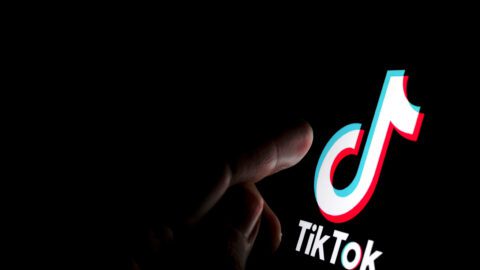The litmus test for the success of any mobile technology is our ability to conjugate nouns and verbs around its products and services. A loving sign is when nouns become verbs and we “Google,” “Skype,” “Facebook” and “TXT.” There seems to be a direct business correlation between becoming part of your consumer’s vernacular and the stock price of the originating company.
Some companies are proactive by positioning themselves for success by making their products and services more verb friendly; they are spoon-feeding the public with marketing terms such as “Tweet,” “Like” and “Check-in.”
In September 2011, Facebook took this spoon-feeding to an entirely new level. At F8 in San Francisco, Facebook expanded its one-dimensional “Like” vocabulary that has dominated the web; it cranked open the commerce dictionary by attempting to move from she “Likes” to he “Liked” to they “Bought.”
We all know that web commerce and communication tools are very Orwellian. Words control actions. Words expand or limit our shopping behavior. Like a well-oiled Orwell Big Brother, Facebook published new mobile commerce words and actions that it classifies as F-commerce. It is a new grammatical system that allows the mobile shopper on tablets and handhelds (oh, and PCs and TVs) to buy better.
Facebook kindly published an image of the “Social Commerce Grammar Lesson” on its blog. Here is a snapshot of the primer:
There are ACTIONS and OBJECTS (a.k.a. VERBS and NOUNS). Verbs have been expanded from LIKE to BOUGHT, WANT, OWNS and HEARTS. These verbs now are added to nouns such as JEANS, CARS, WATCHES and SHOES.
So CONSUMER + ACTION + OBJECT are now a social Linga Franca Nova for web commerce that allows instant publishing of your desire to your friends. For example, Hannah Schwartz hearts Steve Madden pink shoes at Bloomingdales and Susan Frank wears Prada from the Gilt Groupe.
Facebook’s blog writes:
“When an action is published, the activity can appear in the user’s News Feed . . . So when a user is shopping, buying or wanting in the local store a new pair of shoes, jeans, or car, she can publish this activity . . .”
First There Was TXT
The mobile technology landscape is action-packed with colorful language. It seems indicative of the social nature of the channel. Ten years ago, the 160 character constraint of the TXT message birthed a generation of acronyms and abbreviations. These coded words were strung with whatever grammatical glue would hold the idea together.
But the goal wasn’t to not write; it was to send an idea, flirt, inform. A generation of instant messagers sent more smiley faces than punctuation. “Sexting,” “toothing” and “connecting” have turned the messaging channel into a global secret society generating trillions of one-line messages a day. Even the 55+ group is texting more than calling.
The communication and information channels have proliferated over the years. Nearly all our mobile consumer behavior can be conjugated in natural English through these channels. This new instant communication code has a strong grammar and phonetics structure, according to research done by Dr. Nanagh Kemp of University of Tasmania.
However, the choice of channel itself dictates much of the meaning. Building on Ryan Copeland’s oft-quoted tweet ― “Twitter = I need to pee. Facebook = I peed! Foursquare = I’m peeing here. Quora = Why am I peeing?” ― we could extrapolate that the word SHOPPING also can be conjugated across all the channels:
- Twitter I need to shop.
- SMS It’s a good time to shop.
- Facebook I bought.
- FourSquare Here’s where I bought.
- Quora Why did I buy?
- LinkedIn I’m a professional shopper.
The channel also dictates rules of conduct. For example, hashtag etiquette allows just one such symbol, not multiples, in a single tweet.
What we don’t conjugate is as important as what we do. We don’t “QR code,” “APP” or “scan me;” Since these are not communication channels, they don’t conjugate well, and are not in our vernacular.
Mobile language will continue to expand as shopper increasing adopts and adapts these channels.
Facebook Rules Of Engagement
Is Facebook’s Social Commerce Grammar Lesson an attempt to control social actions on the increasingly commerce-friendly web? Is its action and object framework a brilliant evolution of the LIKE button, allowing for consistent experience across the web, or is it a way of controlling and targeting its user base?
What is clear is that if the solution that wins is the one that consumers adopt as their shared language then Facebook is strides ahead of its competitors. It wins if you hear your girlfriend WANTS some GUCCI SHOES from S5A.. . .
Facebook hopes you will not need to “Google” for presents this holiday.












